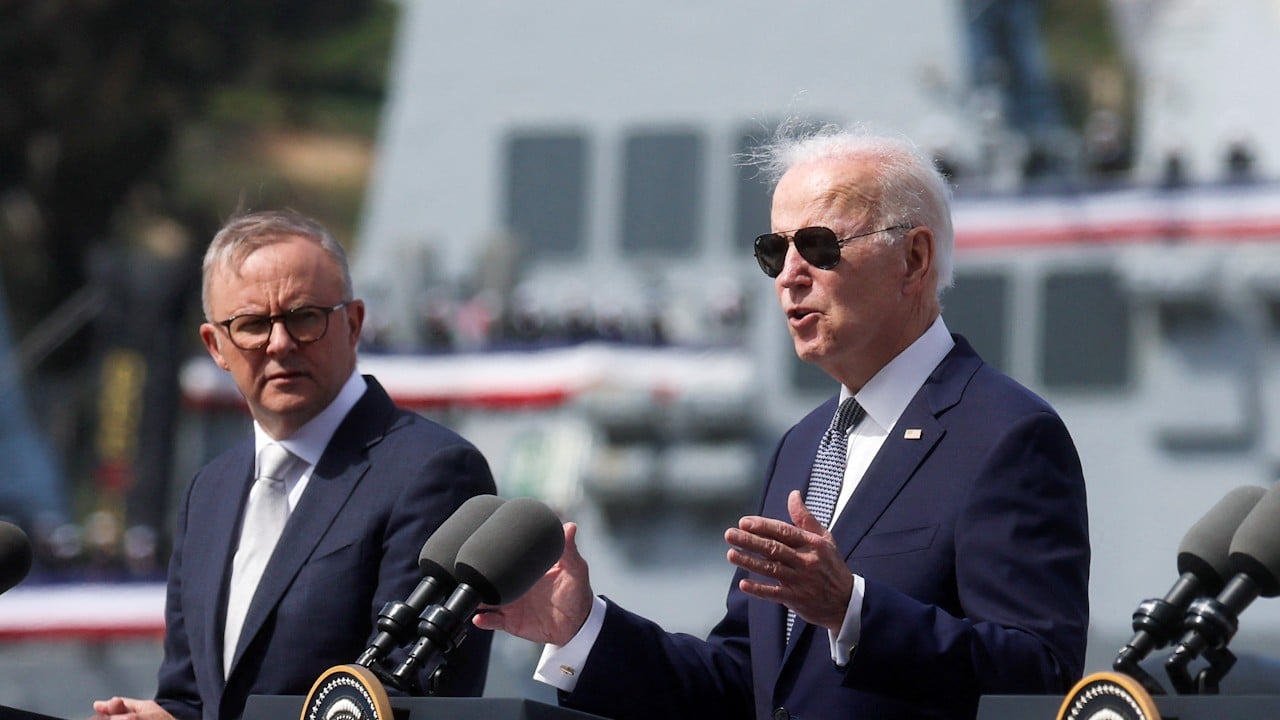
Australia, China still keen on resuming trade and investment after diplomatic thaw: mining tycoon
- There have been many ‘expressions of interest’ by Chinese businesses to work with Australia, mining billionaire Andrew Forrest says at Boao Forum
- The tycoon calls for countries to work together to tackle climate change, and says China can be a leader in creating ‘renewable energy’ supply chains
“The appetite [to work together] never went away,” he told This Week in Asia. “I am grateful we weathered that storm.”
China sends Australia new rules for resuming timber trade
Forrest also acknowledged the challenges Australian business leaders faced as they had to “keep their heads down” when the former Morrison government clashed with Beijing in the past three years.

But troubles between China and Australia are far from over. On the sidelines of the forum, vice-commerce minister Wang Shouwen voiced his concerns to his counterpart, Australia’s Assistant Minister for Trade Tim Ayres, about Australia’s heightened screening of Chinese foreign investment interests in Australia and warned that “national security” should not be abused.
The messaging of Aukus was important, Forrest said, emphasising that while every country including Australia had a right to build its own defence, it would be “unthinkable” if Aukus submarines were used as an “attack system”.
Crucially, such geopolitical squabbling needed to be set aside in light of bigger threats such as climate change, Forrest added. Countries must abandon the desire to form “economic and political” blocs.
“That will really harm our children … and the behaviour itself will be seen as vacuous, ignorant shortsighted, and visionless, when the world is suffering from global warming,” he said.
“They had the opportunity in this critical decade to pull the handbrake on it and didn’t because of geopolitical insecurities that just have no bearing on the enormity of climate change.”

Forrest said his tour of industrial China, including Hunan, Shaanxi, Jiangsu and Beijing, before Boao revealed opportunities for China to play a key role in these supply chains especially in the provision of equipment and machinery.
He urged Asian companies, particularly Chinese ones, to form joint ventures globally that would establish these networks.
The company entered voluntary administration earlier this year but could still resurface through new sources of funding.
“We are talking wind tower generators, we are talking solar power generation, we are talking batteries, we are talking electrolytes; the whole system required to get fossil fuels out of our demagogue system to get into a peaceful world,” he said.
Malaysia, Singapore to showcase ‘proactive’ diplomacy as leaders visit China
“Switching to renewable energy will lead to unprecedented economic growth, full employment, and material improvement in the standard of living of all citizens. China, more than any other country, can lead this decisive action,” he said.
“We must focus on our agreements and similarities and set aside our differences – for the future of all our children. China, we rely on your success, your leadership and your incredible ability to plan and deliver.”


